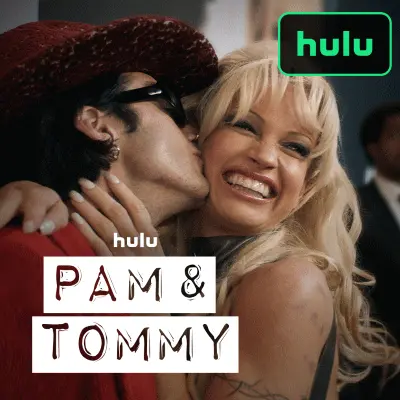Pam & Tommy makes the audience the villain
-

"The Hulu miniseries Pam & Tommy has quietly been reinventing itself," says Chase Hutchinson. "After starting out with some degree of uncertainty about what it wanted to be, it has managed to establish itself as being a show that is willing to confront the true villain of the story: its own audience." After beginning with a focus from the point of view of tape-stealer Rand Gauthier, "we now see how the series not only doesn’t need Gauthier to be the antagonist, it is more interesting without him," says Hutchinson. "The entire audience of those who watched the tape has now taken over the role of villain. There are now thousands of people who are not just watching the video but are making their own copies to continue selling in order for it to spread more. It is an overwhelming prospect as all of these anonymous, unnamed people collectively become responsible for an ongoing invasion of privacy. Not only is this a great deal more terrifying because of how it lays bare how widespread such callousness is, but it also marks a significant shift in the story."
ALSO:
- It's hard to watch Pam & Tommy when amid reports it makes Pamela Anderson uncomfortable: "TV is a collaborative project that shouldn’t necessarily hinge on the feelings of one person," says Adrian Horton. "Nor is a subject’s narrative control and participation necessarily the best recipe for clarity, honesty, even empathy – see: most pop-star documentaries, which essentially function as long-form PR, such as Taylor Swift’s Miss Americana. But Anderson’s lack of interest in revisiting a foundational public trauma, one that reportedly remains 'very painful' for her, undermines the whole project. It invades every scene, particularly in the mid-season stretch in which Pam and Tommy begin to realize the extent of the tape’s dispersal. It turns otherwise potent, provocative material – on the boundaries of privacy, the unforgiving binds of sex appeal, the double standards of public exposure – a shade queasy."
- Taylor Schilling says her porn star character is important to "illustrate and really highlight the exploitation Pam was experiencing"
- How Pam & Tommy's makeup team tackled Pamela Anderson's hair, Tommy Lee's tattoos and piercings and Jay Leno's chin
- How costume designer nailed Pamela Anderson's Baywatch outfit and Tommy Lee's thong
- Do men still wear Tommy Lee-style "man thongs"?
TOPICS: Pam & Tommy, Hulu, Pamela Anderson, Taylor Schilling, Tommy Lee, Costume Design, Hair and Makeup
